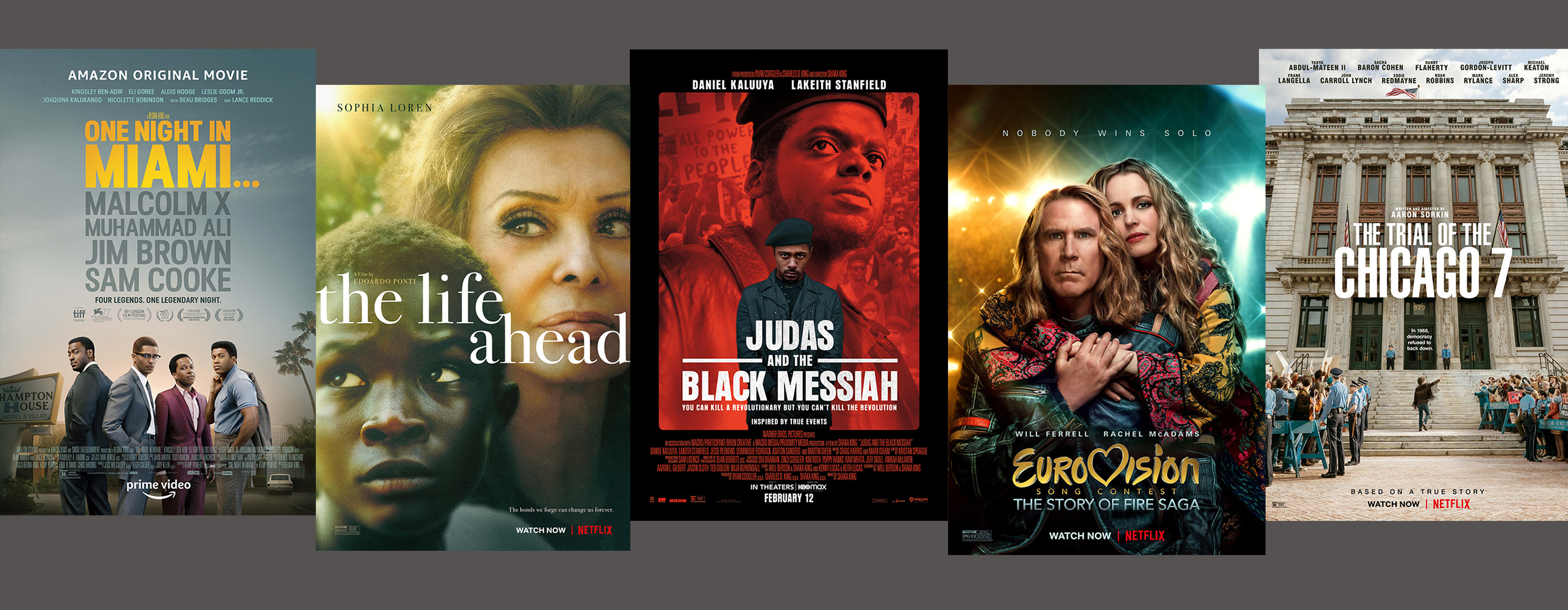By Jon Burlingame for Variety
Sometimes the backstories of Oscar-nominated songs are as compelling as the songs themselves.
Last week, the Songwriters Hall of Fame corralled nine of this year’s 12 nominated songwriters for a round-table discussion of how their songs came to be written, and how they feel about contributing to the art of cinema.
Paul Williams, Oscar winner (Evergreen) and president and chairman of the board of ASCAP, and Nile Rodgers, Grammy-winning producer-writer and Songwriters Hall of Fame chairman, were co-moderators of the hour-long panel.
Hear My Voice from The Trial of the Chicago 7
Writer-director Aaron Sorkin’s script had the Beatles’ Here Comes the Sun as an optimistic end-title song which, composer Daniel Pemberton said, “was probably not going to work.” Seeking an original idea, he thought, “How do you take this very complicated story and make it very simple, with a song that hits people directly, and has a deeper meaning?”
“This film is really about protests,” Pemberton added. “People only protest because no one’s listening to them. They protest so that people can hear their voice.” He asked English soul singer Celeste because “she has this really timeless voice that would work for now, but also ’68 and ’69 which is when the film was set. By the time we’d finished, the world had completely changed, and now it feels like it was a very clever reflection on right now.”
Husavik from Eurovision Song Contest: The Story of Fire Saga
“This was a scene we weren’t able to crack,” said co-songwriter Savan Kotecha. “We needed the emotional heart of the film. All the answers were in the script. [Sigrit] was, throughout, helping [Lars] chase his dreams of Eurovision glory, leaving their town, and all she wanted was him, and to be back home. This was the moment she finally had the courage to say it.”
Added co-writer Fat Max Gsus: “Something serious in a comedy like that is a little bit like Eurovision. When you look at it from outside, it’s this really glamorous, glittery, almost wacky thing, with people of all shapes and colors and costumes singing in [what sounds like] Google translated English… But at the heart of it, it’s like Europe’s Super Bowl, built upon acceptance, real seriousness and respect.”
Fight for You from Judas and the Black Messiah
Co-writer Tiana Thomas recalled watching the movie with co-writers H.E.R. and D’Mile. “I was disturbed, I was mad,” was her initial reaction. “[But] they didn’t want the song to be anything that was sad, that would make you feel disappointed. They wanted it to be something uplifting.” Later, she said, “we were listening to Marvin Gaye, just getting in a vibe, because we did want to be in the same timeframe of when the movie was taking place.”
Added D’Mile: “I didn’t know what I was getting into. I was like, this is really important. Thank God we all came together, and we all worked together to figure it out. Really, it started with H.E.R. picking up the bass, she did some lick, and that was just enough for me to [say] I think I got something, and then it just kind of flowered. That whole energy in the room just flowed, and that’s what happened.”
Speak Now from One Night in Miami
“When it came to writing the song, I think we were just looking to underscore those themes from Regina [King]’s beautiful movie,” writer-performer Leslie Odom Jr said. “Our film closes with A Change Is Gonna Come, the aria that Sam [Cooke] left us with. We knew that part of our responsibility was just to help people find their way back into the present moment.”
“How these four stories came together just created such a rich experience,” added co-writer Sam Ashworth. “I don’t know that it would’ve been possible to really take one little nugget from one person’s journey. I think that’s why it ended up being a song that encompasses more of a feeling, or a directive, than focusing on one story. It took a long time to get to that point and narrow it down.”
Io Sì (Seen) from The Life Ahead
Songwriter Diane Warren heard about the movie and tracked down director Edoardo Ponti for a script. “I read it and I was so moved, it’s such a beautiful story of Madame Rosa, a former prostitute Holocaust survivor, and Momo, a street kid, and they don’t even see each other when they’re thrown together. But through love, they see each other and love each other. I was at my keyboard and I came up with, ‘I want you to know that you’re seen.’ It was just that line, so simple but so powerful.”
Warren realized that the song didn’t work in the movie as sung in English, so she went to Laura Pausini to adapt and sing it in Italian. “We started with the title itself, Seen, a concept that in Italian would not have the same depth and meaning,” Pausini said. “‘Io Sì’ means ‘I do,’ a way of saying, when you think the world forgets you, when you think that you are not seen, remember that I see you. Working on this text was one of the most exciting experiences for me, because it’s for this amazing movie which has such a deep message.”
Ray Costa produced the event for the Songwriters Hall of Fame.
Read the article here on the Variety website!


